‘May the best scoring system win!’ is hardly a sentiment to stoke the passions. In the 2011 referendum, the alternative vote (AV) system was mooted to replace first-past-the-post. The electorate didn’t care for AV, which lost by two votes to one. Indeed, people didn’t much care for the issue at all: the 42 per cent turnout was far feebler than 72 per cent for the Brexit referendum in 2016. The fact remains — how you keep score does matter. In elections, the ‘popular vote’ does get counted, but it isn’t usually what counts, much to the chagrin of, say, Hillary Clinton’s supporters in 2016. In sport, as in politics, much depends upon the scoring system, even as we know that the exact details are arbitrary.
Of course, it must be fair — a legitimate winner is essential. But even ‘fair’ is not a constant. In world championship matches, a tie was once treated as a victory for the incumbent, with the onus on the challenger to depose him. Kramnik, Kasparov, Botvinnik and Lasker all benefited from this privilege, which is now regarded as an anachronism; Carlsen has twice defended his classical title in a rapid playoff.
Besides fairness, one should favour a system that is hard to game. At the 1962 Candidates tournament in Curaçao, a round-robin (i.e. all-play-all) event, Fischer protested that his Soviet opponents would agree draws among themselves, to save their energy for beating him. In the next cycle, a knockout format was preferred, which drastically limits the scope for collusion. Another system vulnerable to gerrymandering is ‘football scoring’, which awards 3/1/0 for win/draw/loss respectively. It has its merits, and sometimes gets an outing in chess tournaments, but players who meet twice might be tempted to exchange friendly fire and harvest three points each, instead of the two that would result from a pair of draws.
Next, a system must be simple. On this criterion, first-past-the-post and PR both trump AV. Knockout events do well here too, although round-robins like the Premier League are transparent enough. Hybrid events with group stages are inevitably a compromise, albeit one that allows outsiders a chance to shine.
As for excitement, a political photo-finish begets confusion — think of ‘hanging chads’ after Bush-Gore in 2000, and years of wrangling after the 52-48 Brexit referendum. But in sport, it’s the very essence! Nothing matches the white-knuckle climax of a penalty shootout. In baseball, a ‘clutch hitter’ rises to the occasion at critical moments, and thus we recently saw ‘Clutch Chess’, an experimental format for an online rapid tournament hosted by the St Louis Chess Club. It was structured around a knockout with twelve-game rapid matches, wherein games 5 and 6 counted double, and 11 and 12 counted treble (with extra money at stake for these ‘clutch’ games too). To my taste, this falls far short of simplicity, but I can’t deny that the Carlsen-Caruana final brimmed with suspense, with back-and-forth wins in the clutch games. With this win in the twelfth game, Carlsen edged it by 9.5-8.5 to win the event.
Carlsen–Caruana
Clutch Chess International, June 2020
1 c4 e5 2 Nc3 Nf6 3 g3 Bb4 4 e4 Bxc3 5 bxc3 O-O 6 f3 b5!? 7 d4 7 cxb5 d5 gives Black some initiative. 7… exd4 8 cxd4 bxc4 9 e5 Nd5 10 Bxc4 Bb7 11 Nh3 d6 12 O-O Nd7 13 Re1 dxe5 14 dxe5 N7b6 15 Bb3 Qe7 16 e6! fxe6 16…f6 was more stubborn. 17 Ng5 Rf6 18 Qc2 Rg6 (see diagram) 19 Rxe6! Qxe6 20 Nxe6 Rxe6 21 Bb2 Rae8 22 Bd4 Kh8 23 Qf5 Bc8 24 Qh5 c5 25 Bxc5 Re5 26 Qf7 Bh3 27 Bf8 Re1+ 28 Rxe1 Rxe1+ 29 Kf2 Rf1+ 30 Ke2 Nc3+ 31 Kd3 Black resigns/>
Got something to add? Join the discussion and comment below.
Get 10 issues for just $10
Subscribe to The Spectator Australia today for the next 10 magazine issues, plus full online access, for just $10.
You might disagree with half of it, but you’ll enjoy reading all of it. Try your first month for free, then just $2 a week for the remainder of your first year.

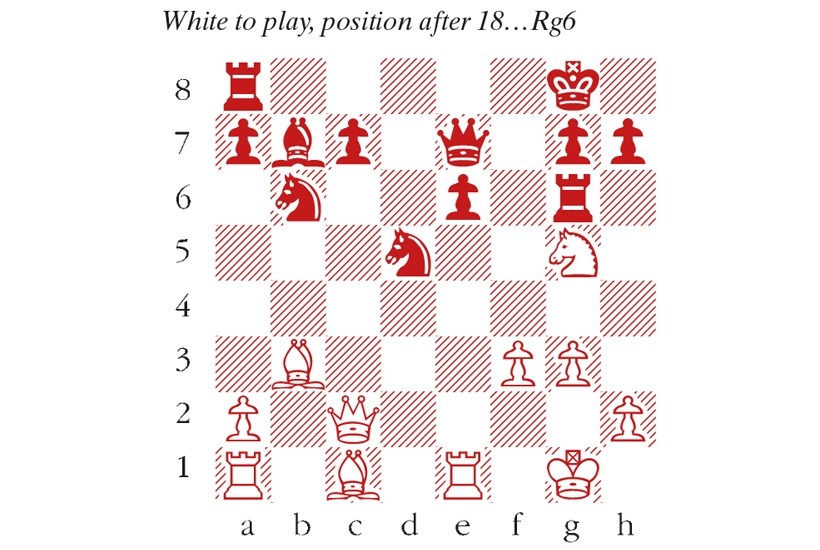
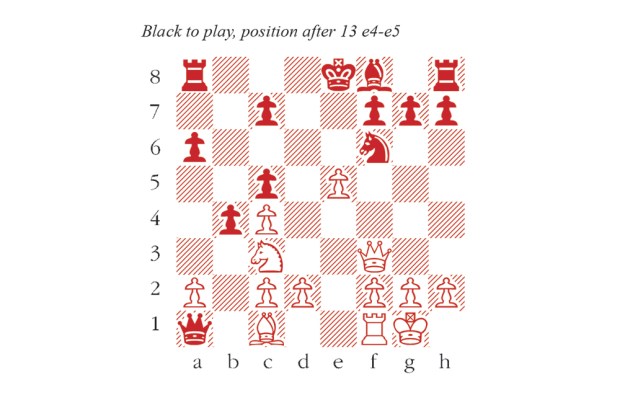
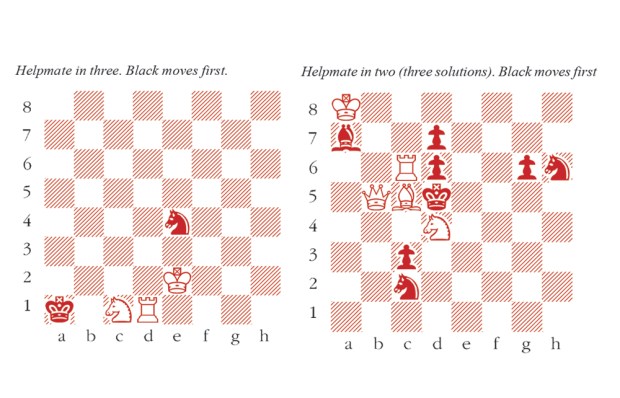
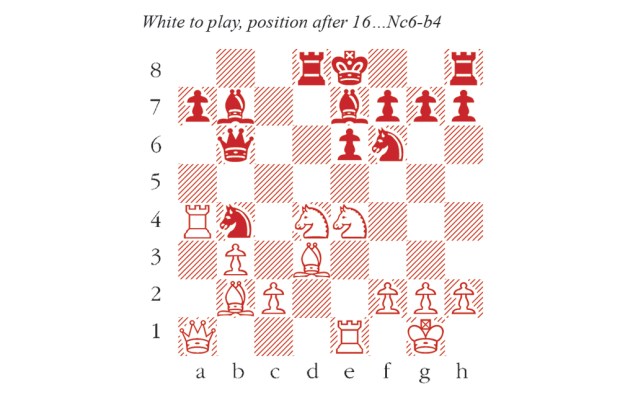
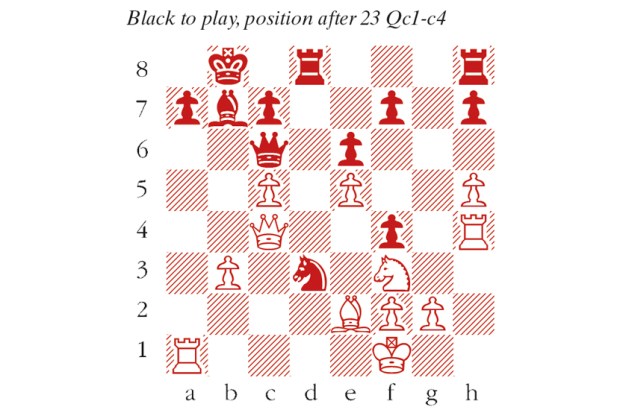
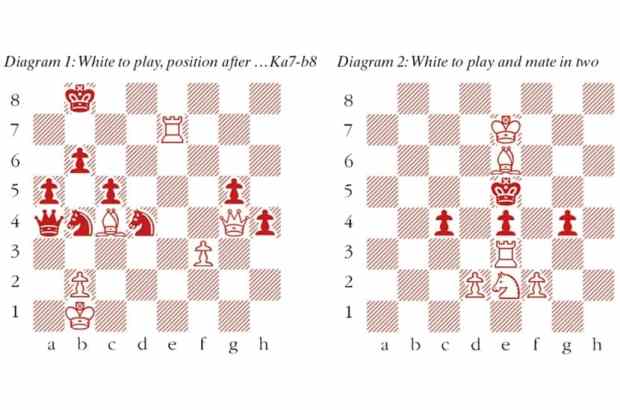
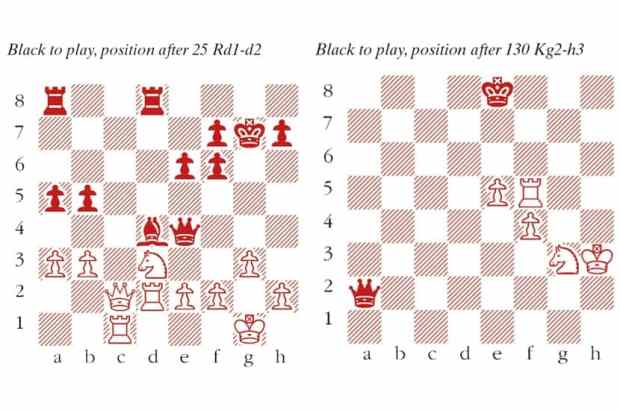






Comments
Don't miss out
Join the conversation with other Spectator Australia readers. Subscribe to leave a comment.
SUBSCRIBEAlready a subscriber? Log in